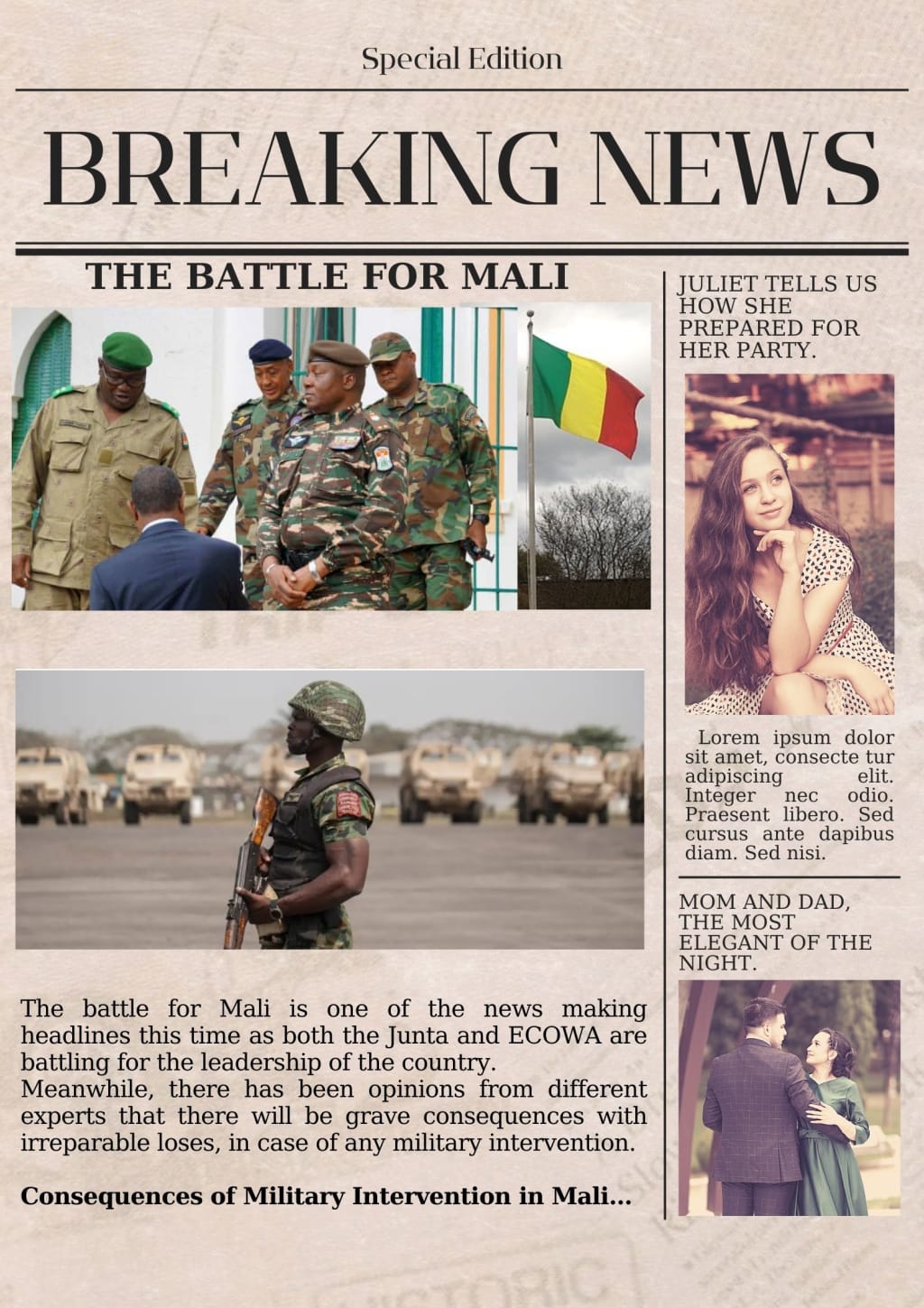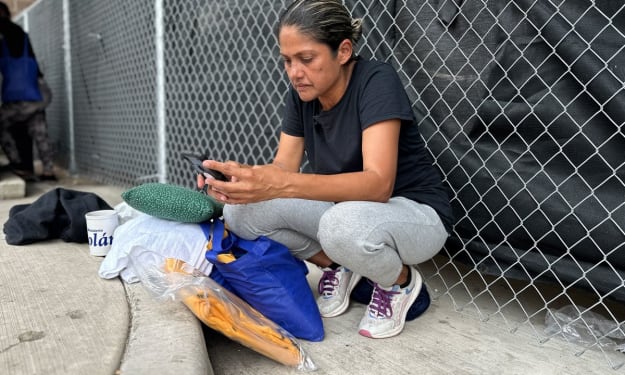For Peace or War
The Consequences of Military Intervention in Mali

The consequences of military intervention in Mali have reverberated through the country and the broader region, leaving a complex tapestry of effects that span political, social, economic, and security dimensions. The decision to intervene militarily in Mali was driven by concerns over the rise of armed extremist groups and the potential destabilization of the Sahel region. However, while the intervention aimed to restore stability and security, it has also given rise to a host of unintended consequences that continue to shape the region's trajectory.
1. Political Instability:
Mali's military intervention in 2012, led by French forces with international support, succeeded in pushing back armed extremist groups from key urban centers. However, the abrupt collapse of the Malian state revealed deep-rooted political issues, including corruption, weak governance, and a history of marginalization of certain ethnic groups. The military intervention disrupted an already fragile political landscape, leading to a power vacuum and further exacerbating political tensions. The interim government struggled to establish authority, resulting in a series of coups and counter-coups that destabilized the country's political institutions.
2. Humanitarian Crisis:
The military intervention exacerbated an already precarious humanitarian situation in Mali. As conflict escalated, thousands of people were displaced from their homes, leading to widespread internal displacement and a strain on resources for hosting communities. This displacement also had cross-border effects, as refugees fled to neighboring countries like Burkina Faso, Niger, and Mauritania, putting additional pressure on already fragile economies and resources in those regions.
3. Spread of Extremism:
While the military intervention initially aimed to counter extremist groups, the unintended consequence has been the spread of extremism to new areas. As these groups were pushed out of urban centers, they regrouped and spread to more remote regions, taking advantage of the vast and porous terrain of the Sahel. The intervention inadvertently allowed extremist groups to embed themselves in local communities, making it more difficult to uproot them and leading to a prolonged insurgency.
4. Ethnic and Cultural Fragmentation:
Mali's diverse ethnic and cultural composition has long been a source of both strength and tension. The military intervention further heightened ethnic divisions, as some groups were perceived to be favored by the government or the intervening forces, while others felt marginalized. This has not only deepened mistrust between communities but has also created fertile ground for extremist groups to exploit these divisions to their advantage.
5. Economic Disruption:
The military intervention disrupted Mali's already fragile economy. The tourism industry, a significant source of revenue, was severely impacted due to security concerns. Additionally, the agricultural sector suffered as displacement and insecurity disrupted farming activities. The overall economic downturn has contributed to rising unemployment and poverty, further straining the social fabric of the country.
6. Erosion of State Authority:
The intervention's impact on Mali's state authority has been multifaceted. While it aimed to restore government control, the continued insecurity in parts of the country has made it difficult for the government to fully assert its authority. Local governance structures have been weakened or co-opted by extremist groups, eroding the state's ability to provide basic services and maintain the rule of law.
7. Regional Destabilization:
The military intervention's consequences have not been confined to Mali's borders. The spread of extremism and displacement have had a destabilizing effect on neighboring countries, particularly Burkina Faso and Niger. These countries have faced a similar trajectory of violence, displacement, and economic disruption, creating a regional crisis that requires a coordinated response.
8. Strain on International Relations:
The military intervention in Mali strained international relations and cooperation. While some countries supported the intervention, others expressed reservations about its long-term effectiveness and potential unintended consequences. Additionally, divergent agendas and priorities among intervening nations complicated efforts to achieve a unified approach to the crisis.
9. United Nations Involvement:
In response to the ongoing crisis, the United Nations established the United Nations Multidimensional Integrated Stabilization Mission in Mali (MINUSMA) in 2013. While the mission aimed to stabilize the country and support political processes, it has faced significant challenges due to ongoing insecurity and political complexities. The involvement of MINUSMA highlights the persistent nature of the crisis and the need for sustained international engagement.
10. Lessons for Future Interventions:
The consequences of military intervention in Mali underscore the importance of careful planning, understanding local dynamics, and addressing root causes of conflict. The intervention highlighted that a purely military approach might yield short-term gains but can lead to long-term complications. Future interventions must prioritize holistic solutions that combine security efforts with political, economic, and social strategies, while also ensuring strong coordination among international actors.
In conclusion, the consequences of military intervention in Mali have been far-reaching and complex, touching every aspect of the country's society and rippling across the Sahel region. The intervention, driven by concerns of extremist threats, inadvertently unleashed a series of challenges that continue to shape the region's trajectory. To address these consequences effectively, a comprehensive approach that addresses political, economic, social, and security dimensions is crucial. Lessons from Mali should serve as a reminder of the intricacies and challenges inherent in interventions and the necessity of addressing underlying issues to achieve lasting stability.
About the Creator
Juliet
An intellectual writer & publisher who writes top-notch events/insight around human life & the world at large
Enjoyed the story? Support the Creator.
Subscribe for free to receive all their stories in your feed. You could also pledge your support or give them a one-off tip, letting them know you appreciate their work.






Comments
There are no comments for this story
Be the first to respond and start the conversation.